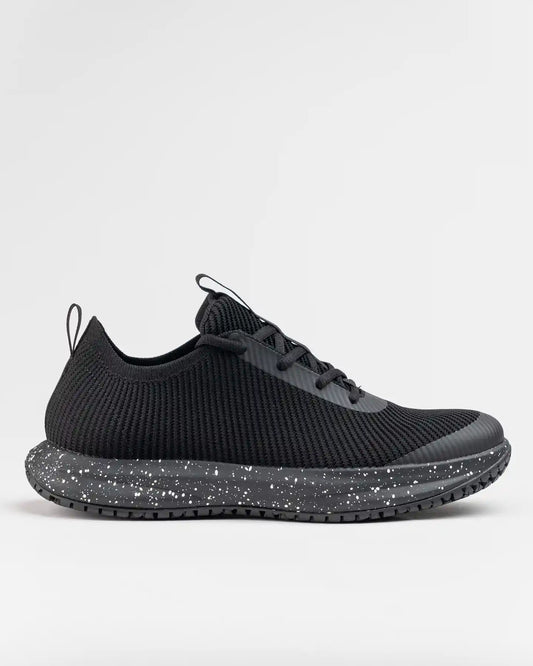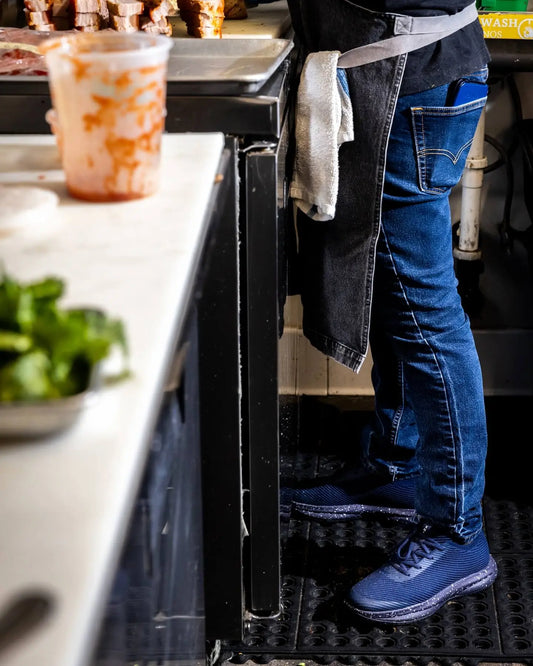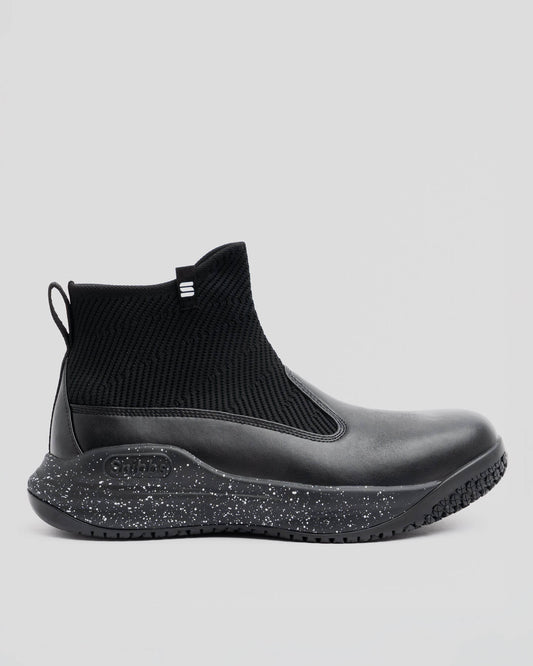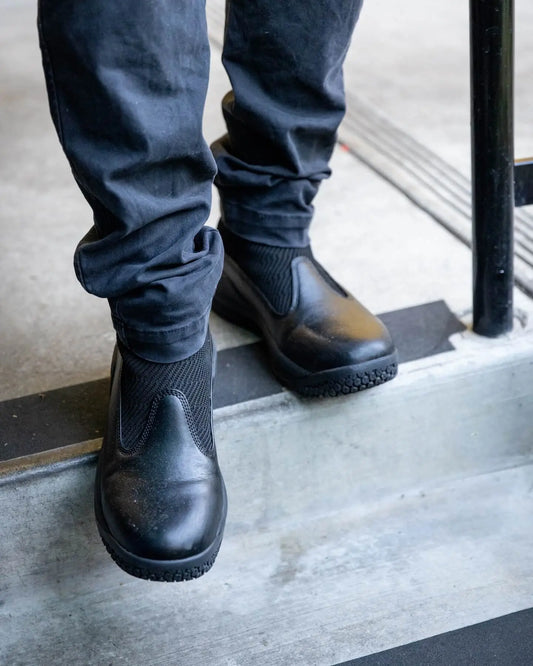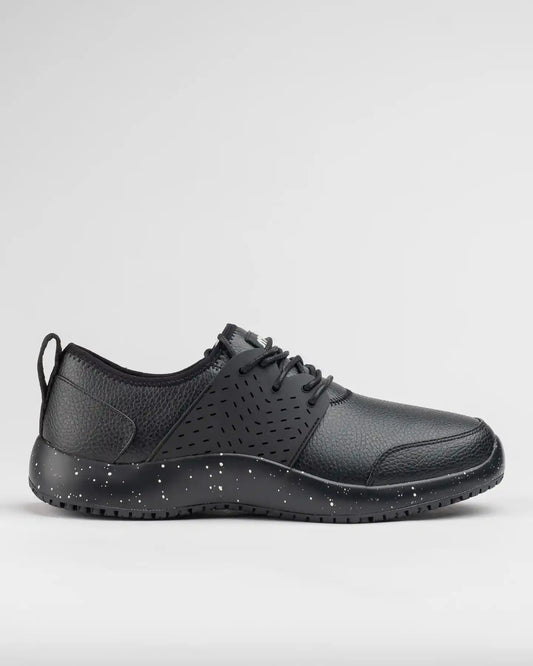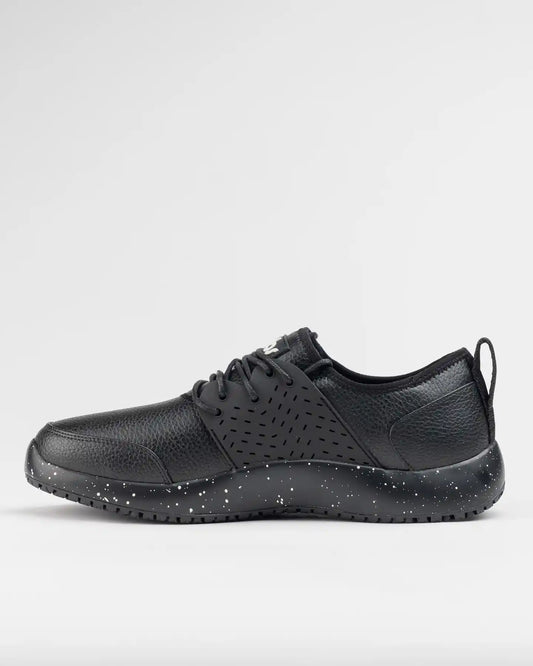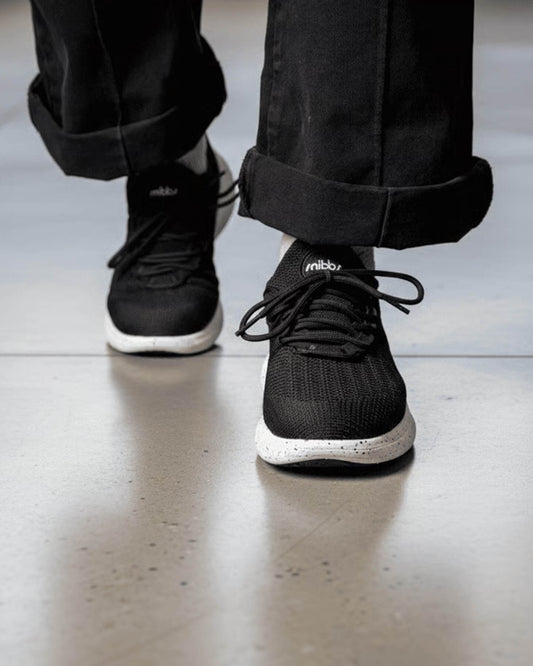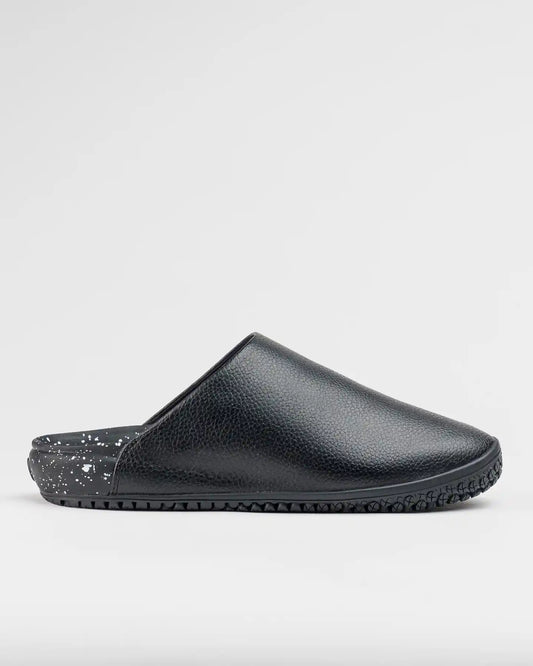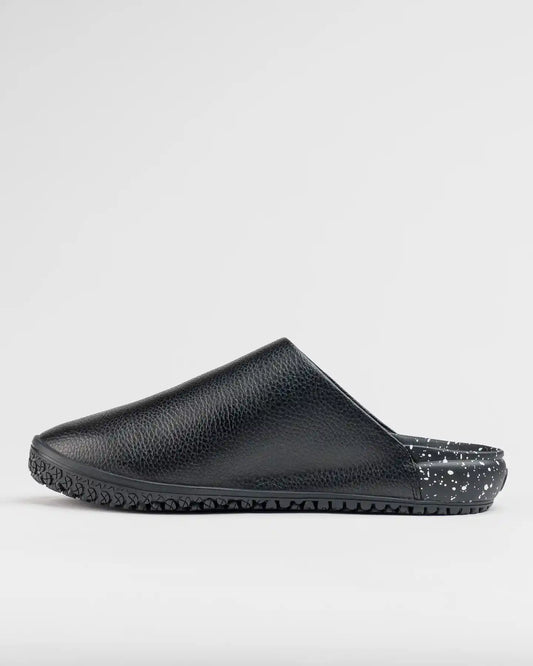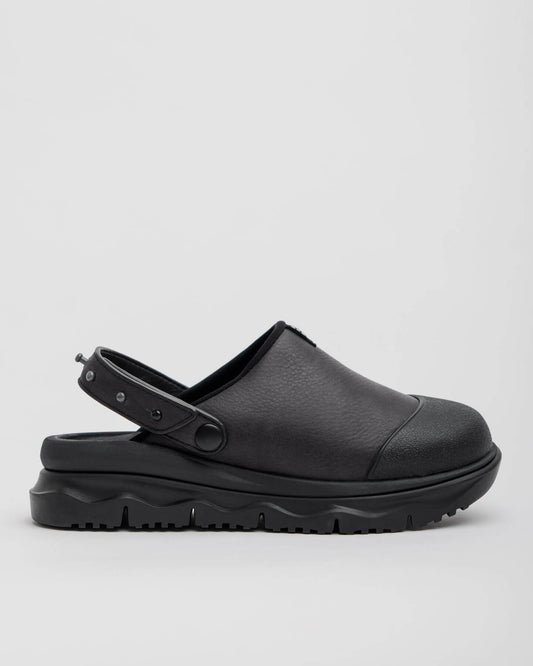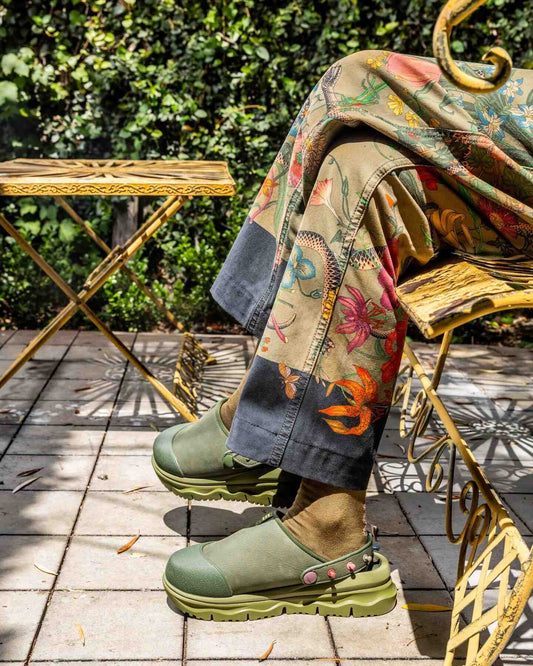Are Non-Slip Shoes Required in Restaurants?
Alex Kinejara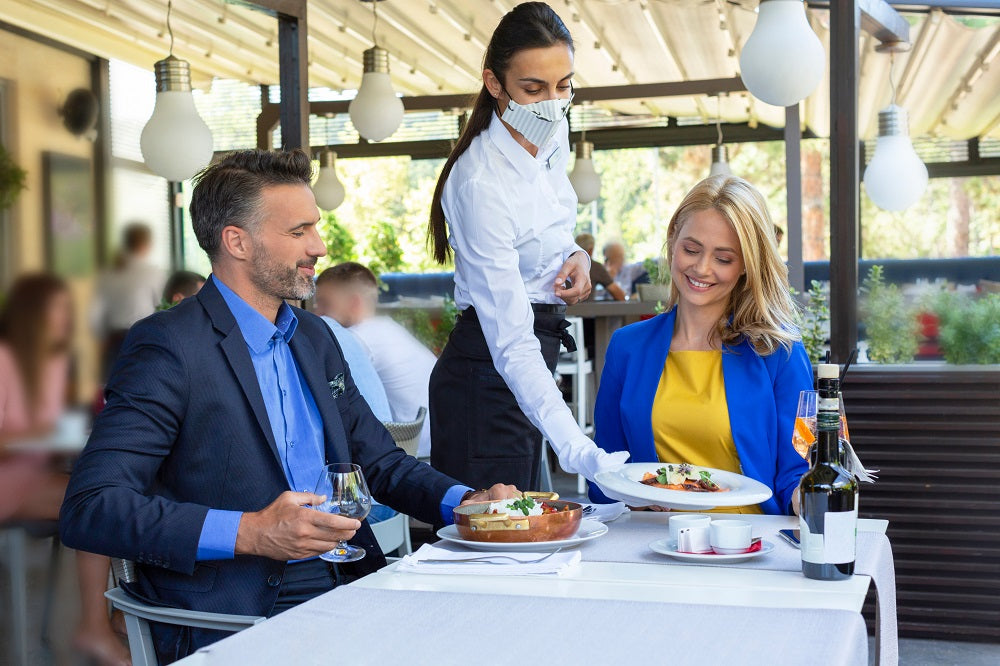
Whether you’re joining a brand new restaurant or your employer has recently changed your dress code, you may be wondering what exactly to put on your feet before heading to your food service job. If you’re starting out in the food service industry for the first time, you might also be asking, “Are non-slip shoes required in restaurants?” While they may not be a universal requirement, most mandate non-slip shoes for workers. And for a good reason.
But what exactly defines a “non-slip shoe”? And how can you ensure that you’re picking out the most durable and safest pair of restaurant shoes? We’ll cover all that, server tips, and more. Nothing slips through the cracks here.
Why Do Restaurants Require Non-Slip Shoes?
There are many studies that prove the myriad benefits of non-slip shoes in the workplace. But perhaps the most striking is a CDC study, which found that “workers who received free, highly-rated slip-resistant shoes had a 67% reduction in claims for slip injuries.”1
Slips and falls are the number-three cause of injury in the food service industry (after burns and cuts). And people employed in the food industry are likely to experience 60% more incidents of injury and illness than those in other industries, according to a study from Emory University.2 So in order to protect you and your colleagues, your employer may implement a restaurant employee dress code requiring non-slip shoes.
When you’re working in an industry that, unfortunately, doesn’t provide very many days off, you need to keep in tip-top shape. You don’t have time to slip and injure yourself. So, in an effort to protect employees, restaurants may write dress codes that require footwear to be:
- Closed toe
- Slip resistant
Remember that you’ll be working in a fast-paced environment with:
- Hot liquids
- Grease
- Water
- Oil
- Liquid garnishes
There are likely to be spills. And the best way to protect yourself against an accidental fall is to come to work in slip-resistant shoes that provide great traction and grip against even the slipperiest of surfaces.
What Shoes Do You Wear to Work in a Restaurant?
The first rule of the restaurant industry is that you never show up to work in open-toed shoes. (Hot oil + exposed toes = something bad just waiting to happen.) Within that rule, there are a few more key components to pay attention to, like:
No matter which work shoe you choose, make sure that it’s comfortable and safe. Bonus points if they make you feel stylish and confident when you put them on.
What Type of Shoes Should Be Worn in a Food Establishment?
We all know that restaurant floors take a beating when there are liquids sloshing about. But your shoes may, too.
In order to prevent accidental spills and stains on your work shoes, look for a pair that is:
- Water resistant — If the material of your shoes can deflect stains, you don’t even have to worry about accidents.
- Easily cleanable — For the days when thick tomato sauce splatters on your sneakers, invest in footwear that are easy to spot-wash. (Or, worst case scenario: Pick a pair you can throw in the washing machine when you get home.)
- Black — If you don’t have time to wash the stains out, at least you can hide them.
How Do I Pick the Best Non-Slip Shoes For My Restaurant Job?
At the end of the day, you want a pair of slip-resistant work shoes that do exactly what they claim to do: Prevent you from slipping at work. So look for a shoe company that is able to prove exactly how their product combats slick spots on your restaurant floor.
Snibbs’ shoes feature a slip-resistant outsole, certified by the industry-standard Brungraber Mark II Test for the highest protection against slick floors. No matter if you’re dealing with water, oil, grease, or any other spill, the superior traction and grip on every Snibbs shoe will help keep your feet on the ground so you can keep serving up meals.
Discover our collection of slip-resistant and unbelievably comfortable restaurant shoes developed by workers specifically for workers.
Sources:
- Centers for Disease Control and Prevention. Slip-Resistant Shoes. https://www.cdc.gov/niosh/newsroom/feature/slipresistantshoes.html
- Safety + Health. Food workers face higher injury, death rates: study. https://www.safetyandhealthmagazine.com/articles/12648-food-workers-face-higher-injury-death-rates-study
- International Business Times. Study: Waiters Take Average of 23,000 Steps A Day. https://www.ibtimes.com.au/study-waiters-take-average-23000-steps-day-1295370
